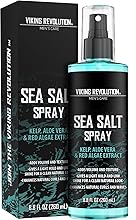
Northern First Nation won't extend 'dry' policy after 'very negative aspects' surface during brief experiment
CBC
A northern Manitoba First Nation's brief experiment with a "dry" policy has come to a close with mixed opinions in the community and concerns over unintended side effects, such as driving people to consume more harmful substances.
Nisichawayasihk Cree Nation instituted a ban on alcohol and drugs from March 24 to April 11, in part so children in the community could have a good spring break, said Chief Angela Levasseur.
The community, about 65 kilometres west of Thompson, typically allows small amounts of alcohol and cannabis for personal use. It and other remote communities have also struggled with bootleggers and substance misuse. The latter is linked to intergenerational trauma that Levasseur says was exacerbated amid pandemic isolation.
Members of the community discussed the impact of the ban at a meeting last week. Opinions were mixed over how to proceed, said Levasseur.
"The conclusion we came to is that prohibition is not the answer," she said.
"We need to continue to address the root causes of alcoholism and drug addiction. There's a widespread need for healing, not just in our First Nation but in all First Nations communities. Historically, there has been a lot of harm done to First Nations people, and the impacts of colonization."
Data provided by RCMP suggests calls for service dropped by about 23 per cent and calls involving "violent persons" dropped by 45 per cent, compared to two weeks prior to the ban.
There were 177 calls for service between March 9 and 22 relative to the 136 during the ban, and 29 calls including violent persons compared to 16 during the ban, according to RCMP.
Levasseur said leaders were happy with that decrease. There were also some "very negative aspects," she said, including reports of some resorting to substances other than alcohol and drugs.
"Those include dangerous substances such as hand sanitizer and Lysol, and that is not what we want to see, because then we have people jeopardizing their health and others risking their lives to bring in bootleg substances through Ski-Doo trails," Levasseur said.
"When you look at the totality of the factors involved, we're still in a place where we feel like we can't win."
Levasseur repeated her calls on the federal and provincial government for more financial support for substance misuse and addictions services that are culturally appropriate.
A number of northern and remote Manitoba First Nations have been considering escalating enforcement of local restrictions or prohibition-style bylaws to curb bootlegging and substance misuse leaders say is connected to social and mental health challenges.
Nisichawayasihk has reverted back to its previous policy of allowing a 26-ounce bottle of alcohol, a case of beer or a box of wine upon entry through the community checkstop.





















 Run 3 Space | Play Space Running Game
Run 3 Space | Play Space Running Game Traffic Jam 3D | Online Racing Game
Traffic Jam 3D | Online Racing Game Duck Hunt | Play Old Classic Game
Duck Hunt | Play Old Classic Game











